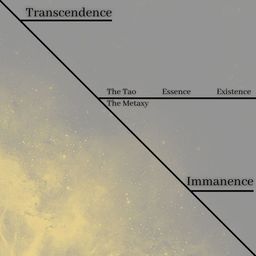Why Francis Bacon is Properly Considered a Founding Father of Modernity
It’s no wonder the poet William Blake wrote of Bacon’s essays, “Good advice for Satan’s Kingdom.”

March 1626. Francis Bacon was riding through Highgate, north of London. The idea occurred to him that snow might be used to preserve food. He stopped the coach, bought a chicken, killed and drew it, then packed the interior with snow. He was apparently in the cold too long. He came down with a chill and couldn’t travel further. He went to a colleague’s house to recuperate, but he came down with pneumonia and died.
The Seinfeld Soup Nazi might have suffered for his soup, but Francis Bacon died for his science.

Bacon’s Importance
Francis Bacon (1561-1626) is huge. He and Renee Descartes form the two-lane freeway of modernity: Empiricism and Rationalism.
All other currents of modern thought—Solipsism, Skepticism, Utilitarianism, Positivism, Progressivism, Marxism, etc.—are just exits from the Empirical-Rational Freeway. Relevant exits, yes, with much to show us, but still just exits. If you can’t follow the contours of the Empirical-Rational Freeway, you can’t drive through modernity. If you can’t drive through modernity, you can’t get to the other side of Huxley’s door: a return to the Tao.
Bacon’s Life
Francis Bacon was one of the last Renaissance men. He was wildly successful in public life; he was wildly successful in his private (intellectual) life. And he was a pretty decent guy by the standards of the day.
Bacon was born in 1561, went to Cambridge, and became a lawyer. In his early 20s, he entered Parliament, where he enjoyed a successful career and became Lord Chancellor in 1618, giving him judicial ministerial functions and making him the highest-ranking official of the Crown, nominally greater even than the Prime Minister, in the line of many great men who held the position like Thomas Beckett and Thomas More. He briefly became Viscount of St. Albans but in the same year (1621) was found guilty of accepting bribes and had to forfeit his positions.
The charge of bribery wasn’t a big moral deal. Judges accepted gifts from litigants in those days. That’s just the way it was. Bacon said the gifts didn’t influence his judicial opinions, but the people who brought the charges alleged otherwise. The bottom line is, he was discharged for reasons other than the alleged bribery, much in the same way someone today from the elite suddenly gets rousted out for some sort of flagrant immorality—whether sexual or financial—but we know the immorality is rarely the real problem and, instead, he has merely fallen out of favor with his powerful colleagues. So it was with Bacon.
He was able to take time from his public life to write a few influential books:
Advancement of Learning (1606)
Novum Organum (1620)
New Atlantis (a utopian novel, uncompleted and published posthumously in 1626)
Bacon’s Ideas
Bacon’s books proposed a new method of inquiry.
In technical language, he proposed that we rely on induction instead of deduction.
Put a little more simply: Instead of trying to deduce truth from a priori principles and making our observations match the principles, he said we should make our observations and reach a posteriori conclusions from the observations.
Put as simply as possible: Instead of using dogmas to tell us what the science says, let’s just see what the science says.
Bacon was very serious about the rejection of dogmas. He admonished readers to eliminate “Idols” that cloud scientific studies and conclusions. His was a complete rejection of metaphysics when it came to the realm of physics. Separation of church and science. He is properly considered the Father of Empiricism.
Bacon’s Attitude
It’s interesting, however, that the Father of Empiricism believed in magic, at least to a limited extent. He employed alchemical principles in his work and believed in astrology (to a degree).
But he loathed the Renaissance Magus. To Bacon, the Magus was arrogant. The Magus brought his pride, ideas, and grand schemes to his magical pursuits, like Tommaso Campenella trying to unleash utopia. Bacon wanted all such pre-conceived notions—whether coming from Scripture or from one’s own mind or hubris—banned from scientific study.
What distinguished Bacon from the Magus wasn’t belief in magic. Rather, it was attitude.
I said above that Bacon was a pretty decent guy. Pretty decent guys tend to have a degree of humility. Bacon apparently did and insisted that the new method also have humility.
Many critics of modernity say Empiricism is arrogant. That’s the criticism of Jacques Maritain and Christopher Dawson and C.S. Lewis. And I agree with it, for the reasons laid out in Lewis’ The Abolition of Man, but the Father of Empiricism himself didn’t seem unduly arrogant.
Now, I’m not sure it makes much difference. You can argue that Marx never would’ve approved of Lenin’s Gulags and Stalin’s show trials, but it doesn’t matter: the Marxist recipe makes such meals so Marx is monstrous. In the case of Empiricism, Bacon wouldn’t have approved of the hubris of a science that creates nuclear weapons and COVID, but the Bacon recipe makes such meals so Bacon is monstrous.
Could be.
But here’s where I draw a distinction: Unlike Marx, Bacon opposed hubris, great schemes, and grand ideals. Heck, I’m not even sure he believed that a scientist should have theories, at least not grand, overarching, narrative-like theories.
In Bacon’s system, man makes himself very small. He works with the most basic building blocks of nature and simply watches as nature’s truths unveil themselves. In a sense, minimal human effort is required. Just dig in the ground and gold emerges. You don’t need geological studies, historical maps, metallurgical studies, or divining rods: just humbly dig and get gold.
Bacon: Founding Father of Modernity
Bacon, however, is still a founding father of modernity. Recall the modern intellectual formula:
1. Reject God;
2. Unwittingly embrace a new god (Derrida: “logocentric idea”);
3. Rationalize truths from that new god.
This was Bacon.
1. Bacon rejected God. Not in his faith life (he was a committed Anglican), but as a practical matter: he wanted God and God-like and God-emanating things—a priori premises, mental idols, logocentric ideas—excluded.
2. Bacon unwittingly embraced a new god. He had at least three a priori premises: (1) the goodness of empirical studies, (2) the idea that man is a blank slate that doesn’t intuitively (automatically) put some sort of a priori spin on the data, and (3) the natural goodness of material improvement.
3. He then rationalized dogmas from those gods. To wit, the idea that empiricism would unlock nature’s secrets, allow us to dominate nature, and usher in a golden era.
His followers—Europe’s intellectual elite—would conclude that, not only should we not use a priori premises (metaphysical truths) in science, but we should exclude all metaphysical premises from consideration at all. In the centuries following Bacon, the Tao side of reality was increasingly discarded: ignored, rejected, even mocked.
It’s no wonder the poet William Blake wrote of Bacon’s essays, “Good advice for Satan’s Kingdom.” Blake, probably the most Tao-infused writer of the modern era, could’ve written, “Good advice if you want to kill the Tao.”
Science: The new tool
As I’ve recounted previously, Europe during Bacon’s later life suffered a major mental disturbance when Isaac Casaubon proved in 1614 that Hermes Trismegistus wasn’t an ancient writer. Hermes and his magical texts had preoccupied European intellectual circles since 1460 (the year Cosimo de Medici arranged for Hermes’ writings to be translated), creating a magic frenzy in which the Renaissance Magus was applauded and celebrated from royal courts to the mansions of wealthy merchants.
It all came crashing down after 1614.
Europe had placed its progressive dreams in magic.
And now magic was gone, forced underground into esoteric groups like the Rosicrucians.
But the desire for progress wasn’t gone.
The intellectual elite just needed a new tool and Bacon provided it: science.
This Essay's Connection to The Hemisphere Hypothesis: Grasping Knowledge of the Type Embraced in Bacon's Wake is Left-Hemispheric Knowledge


